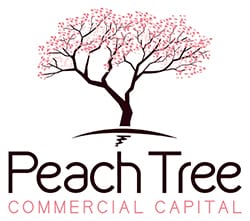The Small Business Association can be an invaluable resource for your business. Dedicated to finding capital and other resources for planning and management, the SBA facilitates small business loans, provides grants from research, and provides disaster assistance. However, like any system, it is important to know exactly how they operate in order to get the most out of work or collaborations with them to better improve your business.
Help with Business Loans
The SBA doesn’t lend money, and you don’t need to be turned down by banks or individual lenders to get the SBA to help with a business loan. The SBA provides loan guarantees to lenders, which allows them to lend to borrowers with less collateral or credit. In that way, it acts like a co-signer.
There are several loan programs the SBA uses to provide assistance. The first is the Basic 7(a) loan program, which is set up to help with loans for both existing businesses and start-ups. These loans can be used for a variety of business purposes, including most day-to-day operations. There are some requirements to qualify for these loans, which include being defined as “small” according to SBA guidelines, located in the United States, have sufficient equity, and have exhausted all other financial institutions, including personal assets.
The other major loan program is the 504 “Go” Loan, which is used for property and equipment in development areas. In order to be approved for an SBA 504 Equipment Loan, a business must provide proof of experience and show a need for the equipment being purchased.
Loans which are supported by the SBA can have additional paperwork in order to receive approval but can be an ideal solution for those businesses looking for commercial lending who have exhausted the other resources available to them. Make sure to work with a broker who has experience and contacts who are willing to offer SBA loans.
Grants for Research and Development
The SBA also offers grants to small business working to develop new technologies or techniques. The SBIR or “Small Business Innovation Research” is a competitive program that is used to encourage businesses to do research that has the “potential for commercialization.” SBIR grants can also be awarded to research which focuses on businesses run by “socially and economically disadvantaged persons”.
The other major grant program is the STTR or “Small Business Technology Transfer” which connects businesses with research institutions in public/private sector partnerships for joint venture opportunities, including five government agencies.
The SBA coordinates these programs to aid those companies which are developing technologies which can be utilized to improve how business operates, or to do essential research which is not sponsored by other institutions.
Help for Specific Types of Small Business Owners
One of the best services the SBA provides is help for specific types of small business owners. These can include women-owned business, minority-owned business, disabled or disadvantaged business owners, and Immigrant or foreign-born business owners.
These services can include unique loans, training and seminars, national councils to assist in facilitating the training, and assistance in navigating the application for federal contracting. This can help with not only finding funding for small business, as well finding as additional resources that can help in the management of their business.
Disaster and additional assistance
These are one of the SBA’s most important functions. The SBA offices in disaster centers will provide additional assistance to small businesses who have been hit by the disaster. This includes funding for physical damage and economic injury that isn’t covered by the business insurance. The business will need to provide proof of damage, but this is a unique funding solution for when the worst happens.
The SBA Learning Center also offers online courses on a variety of subjects. These courses provide unique training into different aspects of business ownership. These trainings include how to write a business plan, legal requirements for small businesses, and guidance for young entrepreneurs just starting their business.
Make sure to stay up to date on what your local SBA is offering. They may have unique classes, meetups, or seminars that can help you improve your business. Additionally, a local SBA can help connect you with lenders that carry their loans. It is important that every small business owner looks at what the SBA can do to help your small business.

